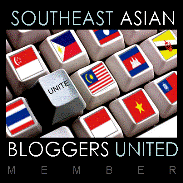I'm An OFW And This One Really Hurt Me
Thanks Sheila and Ate Yael for sharing. And if this is all true, my personal message for the people involved is(sorry, I tried but couldn't find a better way to put it):
May you all rot in hell like aged kitchen garbage, you filthy, sickening bastards! Punyeta kayong lahat. LAHAT kayo.
___________________________
May you all rot in hell like aged kitchen garbage, you filthy, sickening bastards! Punyeta kayong lahat. LAHAT kayo.
___________________________
THE Commission on Audit (COA) has rebuked the Philippine Overseas Employment Administration for "illegally" granting about P40million in incentives and allowances to its officials and employees for the past three years.
COA also took the POEA to task for allowing its executives and employees who were issued mobile phones to download about P796,000 worth of games, tones, picture messages and other unauthorized items.
In its latest report, prepared by Director IV Roberto Marquez, COA said the POEA drew P24.048 million from the funds of the Overseas Workers' Welfare Administration to grant an "incentive allowance" to its personnel. Such use of OWWA funds is unauthorized, COA said.
It said that even if the OWWA Board of Trustees had justified the giving of the incentive allowance by citing the increase in OWWA collections from overseas Filipino workers, the move was "without legal basis."
Section 15 (e) of the General Appropriations Act, FY 2003 (as reenacted in 2004), "as well as previous> general appropriation acts, provides that no government funds shall be [used] to pay honoraria, allowances or other compensations to any government official or employee, except those specifically authorized by law," the report stated.
Section 3 of Administrative Order 103 also bans national government agencies from granting new or additional benefits to their officials and employees "except for Collective Negotiation Agreement (CNA) Incentives and those expressly provided by presidential issuance," the COA said.
Although it recommended that the POEA management stop granting the incentive allowance, COA acknowledged that the issue is awaiting final disposition before the Legal Adjudication Office.
COA noted that the POEA granted P15.448 million for the CNA signing bonus and rice allowance to its employees, a violation of rules laid down by the Public Sector Labor Management Council.
COA said the POEA management and the employees' union agreed on a quarterly rice subsidy to its employees, including casuals, contractual and temporary workers, and a P15,000 signing bonus "to be given on a staggered basis within three years subject to the availability of savings."
On the strength of the agreement signed on December 10, 2001, the POEA granted P15.448 million from 2002 to 2004. But! the COA reviewed the payments and found they could have violated the rules on CNA signing bonus and allowances. Rice and other subsidies require "appropriation of funds," or approval from Congress and subsequent enactment of the President, COA said.
COA also cited a May 16, 2002, circular from the Department of the Budget and Management that said the President has issued a "moratorium on the grant of CNA signing bonus due to some problems raised on the payment and fund source."
COA added that the moratorium has been in effect until these problems are resolved and a policy is issued on the matter. It also cited the July 11, 2002, decision of the Supreme Court in the case of Social Security System v. COA, in which it ruled against the signing bonus as a form of additional compensation under the Constitution.
COA said that despite the Court's earlier pronouncement against the granting of incentives and allowances, the POEA in 2004 still gave P7.2105 million to its employees and officials as signing bonus and rice subsidies.
The POEA justified its move by saying that the budget department had approved the release of incentives and allowances, COA said.
COA also questioned why the POEA failed to follow the guidelines in its memorandum on October 26, 2001, covering the use of cell phones after the POEA paid for the nonessential downloads made by its officials and employees.
The POEA is supposed to put a limit on the use of cell phones, but the audit on its telephone bills showed that P487,283.59 of the P1.3-million total from 2003 to 2004 consisted of charges in excess of the authorized limit.
Even POEA's bookkeeper in charge admitted that she could not impose limits on the use of the cell phones to some officials, COA said. "We also noted that the POEA had incurred other charges amounting to P308,747.58 in the use of the mobile phones, in addition to the fixed charges of P400,002.80 due to subscription to Globe lines or plans. These additional charges are value-added taxes and currency adjustment fees. Other charges which are personal and which are easily incurred and billed due to the nature of line subscription, include share-a-load and its processing fee, GPRS such as Globe games, photo messages, polyphonic ring tones,digital postcards, photo album, cinema and magazine covers, premium java download, instant messaging and catxtcism, etc.," COA said.
To avoid further overpayments, COA recommended that the POEA coordinate with Globe to shift to prepaid cards and end the subscription of postpaid lines.
If this is all true it is ROBBERY, CORRUPTION AND DISREGARD FOR THE LAW.











|